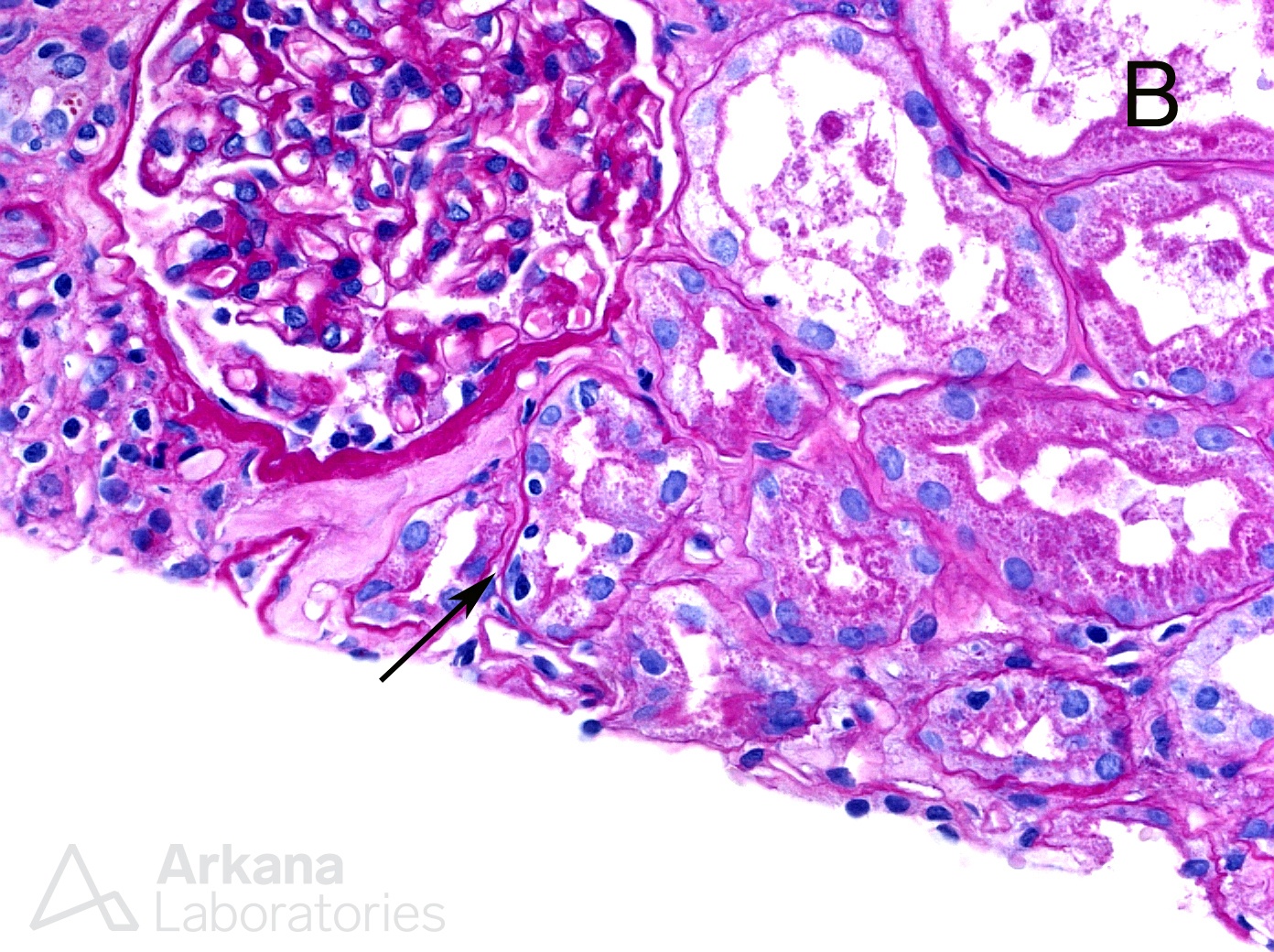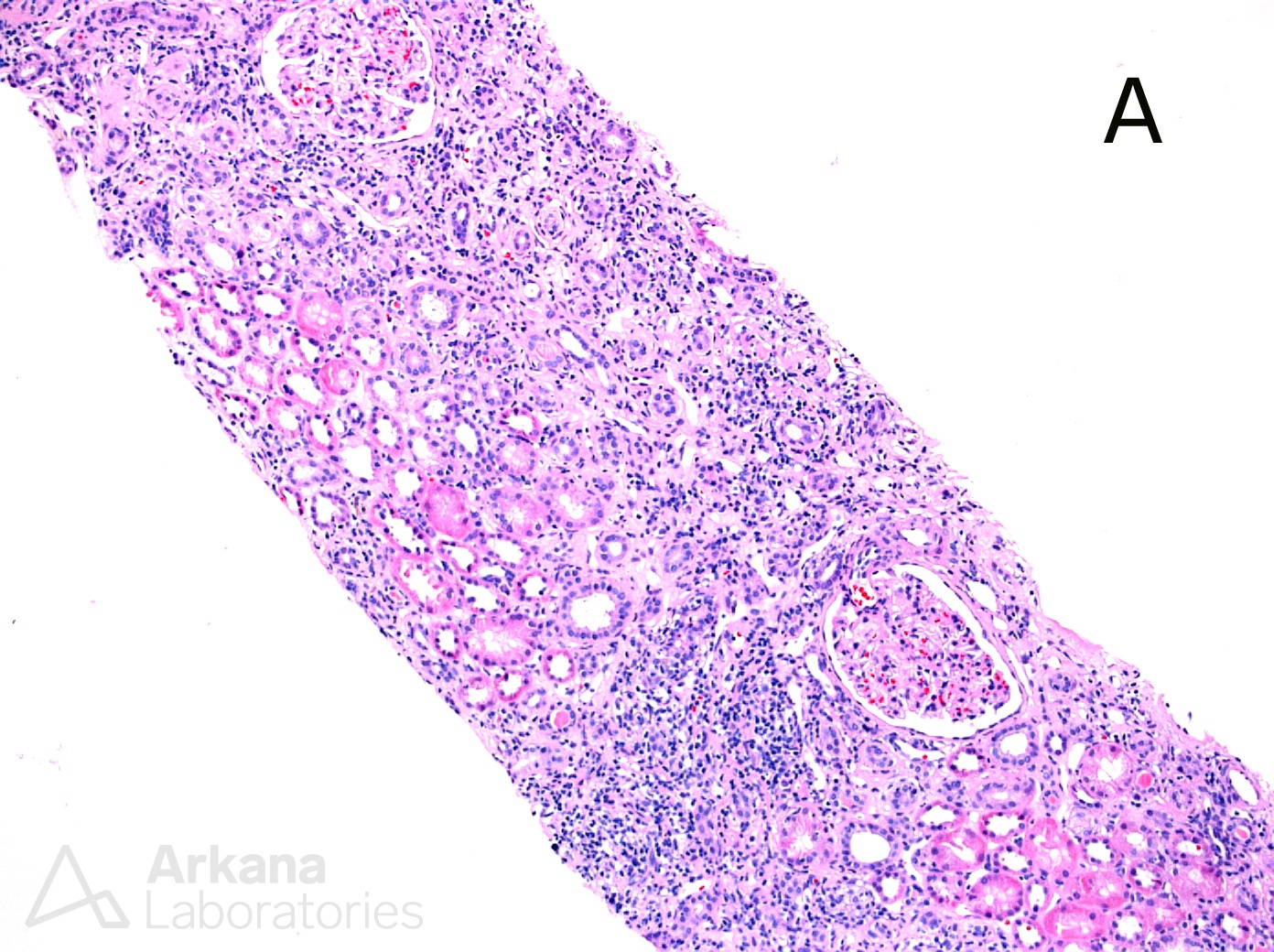Chronic interstitial nephritis (CIN) is diagnosed when interstitial inflammation is present in areas of fibrosis (A) in combination with the presence of tubulitis (B). The most common etiologies include autoimmune disease (e.g. Sjögren’s, TINU, IgG4-related disease) and longstanding drug-induced hypersensitivity reaction. The case shown here is from a patient with chronic interstitial nephritis secondary to treatment with a proton pump inhibitor (PPI). The risk of CKD from PPI therapy is well known. Kidney biopsies from patients with renal function decline resulting from PPI therapy most commonly show a chronic interstitial nephritis pattern of injury. This is one of the most common medication-induced etiologies of CIN today.

Quick note: This post is to be used for informational purposes only and does not constitute medical or health advice. Each person should consult their own doctor with respect to matters referenced. Arkana Laboratories assumes no liability for actions taken in reliance upon the information contained herein.



